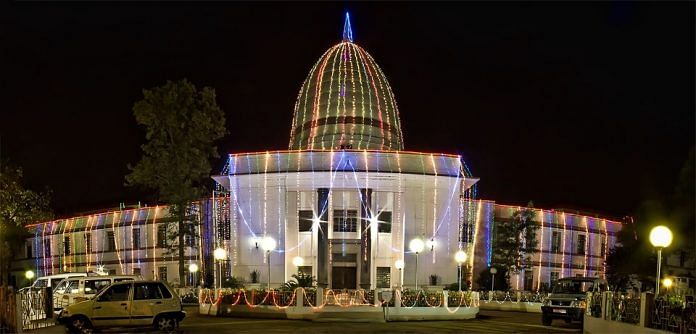New Delhi: In a significant judgment, the Gauhati High Court has pulled up the Assam government and Gold’s Gym for not being sensitive towards persons with disabilities and imposed a penalty on both.
The high court in its verdict delivered on 11 March asked the state government and Gold’s Gym, an American fitness chain, to pay Rs 50,000 each to Guwahati-based NGO Shishu Sarothi, which works for the rehabilitation of children and persons with disabilities.
The executive director of Shishu Sarothi, Armaan Ali, has cerebral palsy, and he had filed a writ petition in 2011 for the discriminatory treatment.
“It is quite evident that the officers and staff of the Social Welfare Department are not at all aware of the importance and significance of the aforesaid acts, not to speak of sensitivity to the cause of the differently abled,” said Justice Ujjal Bhuyan, pulling up the social welfare department of the Assam government.
“The case highlighted by the petitioner is not only confined to him but similar or far worse situations are faced by people with disability. It is only the proverbial tip of the iceberg,” he said in the verdict.
The judge also asked the government to organise training programmes to sensitise employees of the social welfare department about disabilities.
Also read: Expanding Article 15 to include discrimination against disabled people
‘Gym imposed conditions on membership’
Ali had sought membership at the Gold’s Gym as he wanted to lose weight and enhance his stamina. But the gym imposed several conditions on his membership. This included asking him to provide certificates from his physician as well as orthopaedician.
The gym also demanded an exorbitant fee from Ali, besides subjecting him to rigorous workout to dissuade him from joining the gym. Over a period of four months in 2011 — from March to June, Ali was also subjected to humiliation and ignominy by the staff and other members of the gym.
Commending Ali’s persistence and his fight for his rights, the high court observed, “Notwithstanding such disability, the petitioner has overcome physical and mental barriers in his personal capacity and by virtue of his commitment and participation, he has become a leading disability rights activist of the country.”
The HC said responses of both the state government and the gym in the matter were “pathetic”.
On the government’s response, the court said it tried to “evade responsibility” by putting the blame on Gold’s Gym.
Gold’s Gym had submitted in the high court that “it was a private entity and not a ‘State’ or ‘other authority’ as defined in the Constitution. It is an entirely private entity and does not discharge any public duty or function”.
On this, the high court said, “… (Gold’s Gym) could have and ought to have filed a better affidavit rather than highlighting only its private character and contending that writ petition is not maintainable”.
Also read: Delhi Golf Club caddies allege discrimination, say it’s run like a ‘private club’
‘Society’s attitude has taken form of crass insensitivity’
Justice Bhuyan observed that the attitude of the society has “taken the form of crass insensitivity or apathy with latent prejudice against persons having different kinds of disabilities”. He added our popular culture was “replete with instances where so-called ‘normal’ people make fun of persons having different kinds of disabilities”.
“…it can be said that such prejudices are deep-rooted and manifest itself at different times, in different forms and in a different manner,” he added.
After carefully analysing The Rights of Persons with Disabilities Act, 2016, the high court said the provisions of the Act are not limited to government facilities but permeates in the private space as well.




Such kind of discrimination is not acceptable.Arman sir,I salute you.